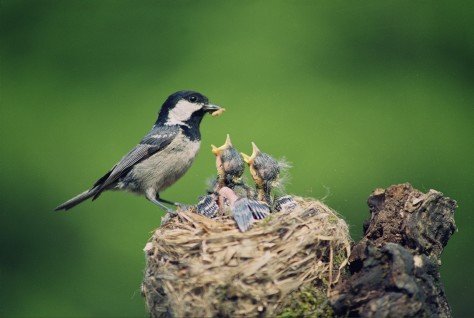Everything you need to know about feeding birds in your garden

If you’re a nature fanatic and love nothing more than planting exotic flowers from the likes of Ashridge Trees and keeping your outside space in tip-top shape, you might also like watching animals coming in and out of your garden. Feeding birds is a popular hobby in the UK, so if this is something you enjoy, here’s everything you need to know about keeping those beautiful winged creatures content, well-fed and happy.
Feed birds all year round
According to the Royal Society for the Protection of Birds (RSPB) and the British Trust for Ornithology, it’s perfectly acceptable to feed birds all year round. These stunning creatures need the correct nutrients every day, however, and feeding birds during the winter months should certainly be a priority as natural food sources are sparser at this time.
Provide food at dawn and dusk
In the wild, most birds forage for food in the early morning as soon as the sun rises and as dusk before darkness completely takes hold. So, in order to comply with their natural instincts and routines, it’s a good idea to make sure food is available during these times.
Think about where you place feeders
Birds are naturally timid creatures who will only feed if they feel safe and secure. So, with this in mind, try to place feeders within a very short distance of trees to encourage them to fly out for a nibble. Similarly, offer feeders at various heights as while many birds will feed off the floor they won’t if there are predators such as cats nearby.
Be patient and don’t get disheartened
If you don’t have any visitors to your bird table for quite a while, fear not. It can take weeks if not months for a bird to feel comfortable at a new feeding spot – after all, they like to suss out the area and make sure everything is safe – so be patient and don’t get disheartened.
Provide several different feeder types
One of the best ways to attract different species to your garden is to provide several different feeder types. While tray or platform feeders are ideal for seed-eating birds such as pigeons, starlings and sparrows, suet feeders constructed of wire mesh or plastic coated wire mesh will attract woodpeckers, nuthatches, jays and starling.
Protect feeders from squirrels
Laying out food is one thing, but making sure the right creatures eat it is another. Squirrels can easily get to tray and hopper feeders which have little protection, so make sure you buy one with an effective squirrel baffle on the pole or suspension chain.
Choose the right foods
Birds can eat many different kinds of foods, but some will provide them with more nutrients than others. Sunflower seeds, for instance, are rich in protein and unsaturated fats and peanuts are high in fats and protein. Nyger seeds are also a great source of vitamins, but if you don’t want to spend a fortune on specialist bird food packs, feel free to put out leftovers such as dried fruit, finely chopped unsalted bacon rinds, spare dog/cat foot, leftover grated cheese and cereal.
Feeding birds in your garden can be a wonderful pastime, but make sure you follow some of the basic rules above.
Category: Sci Tech






